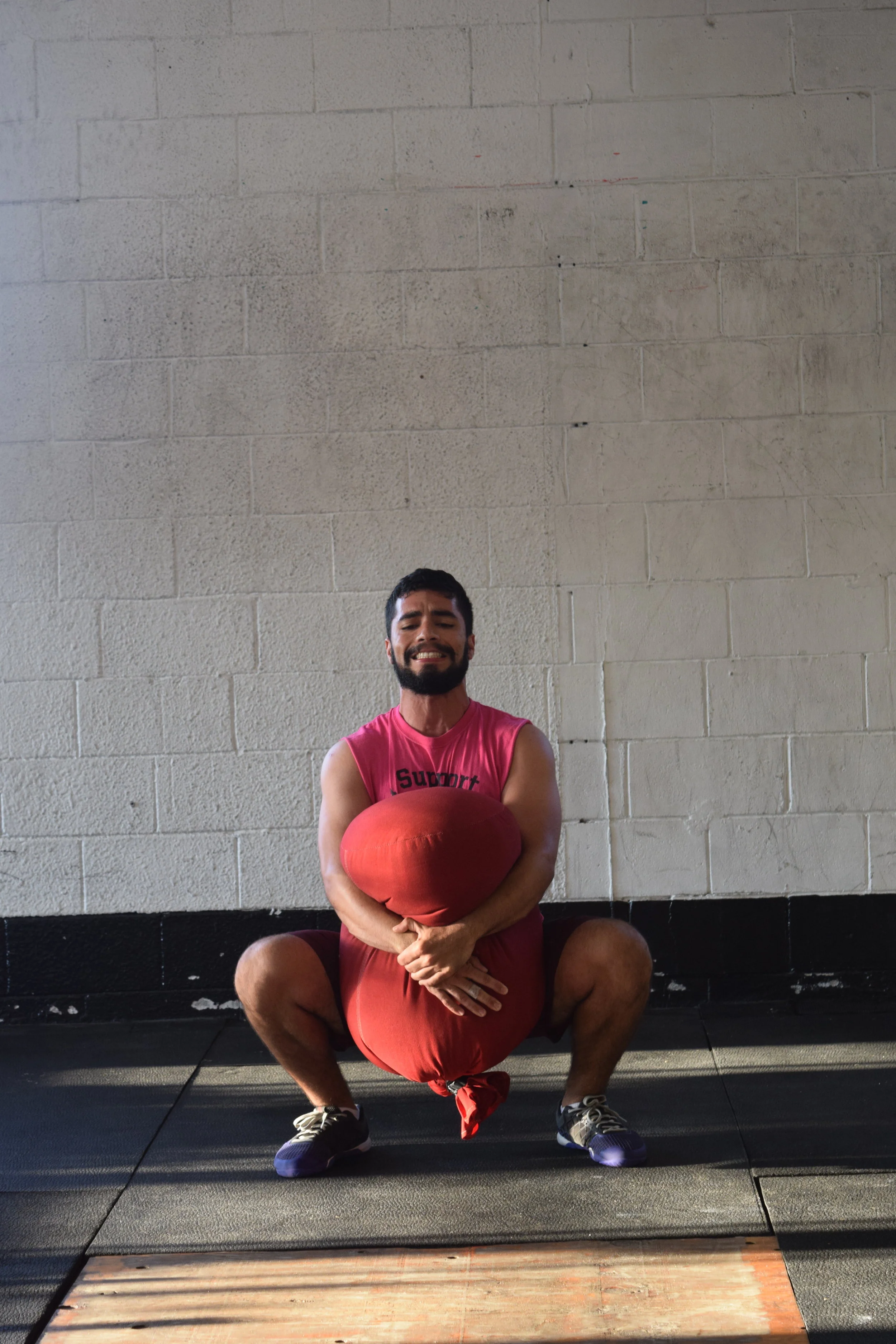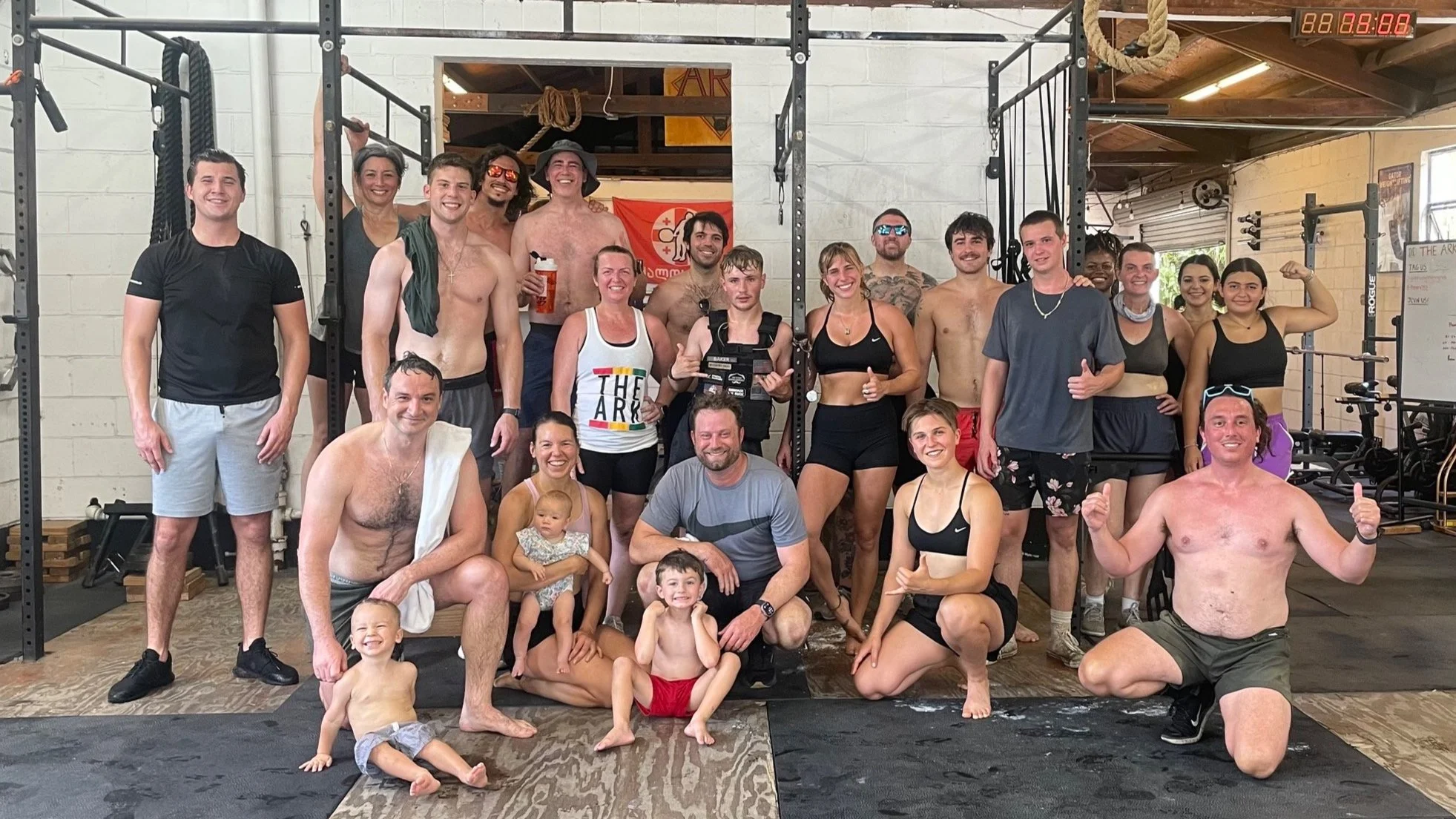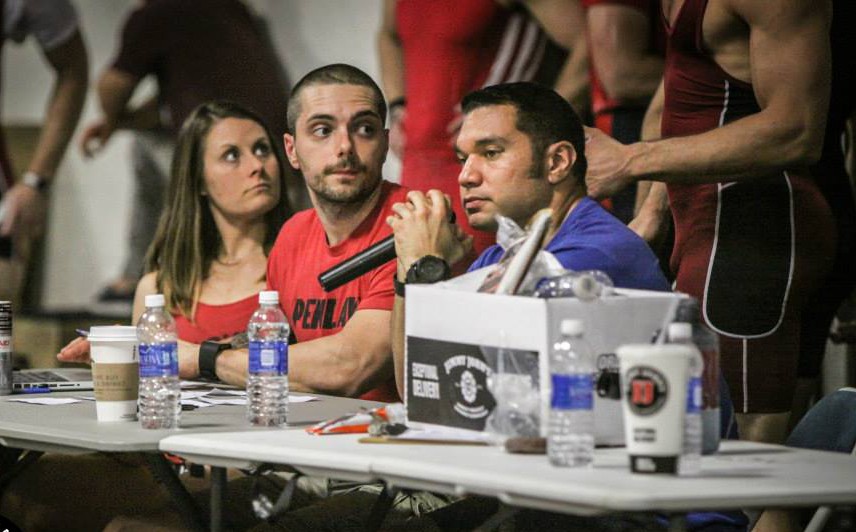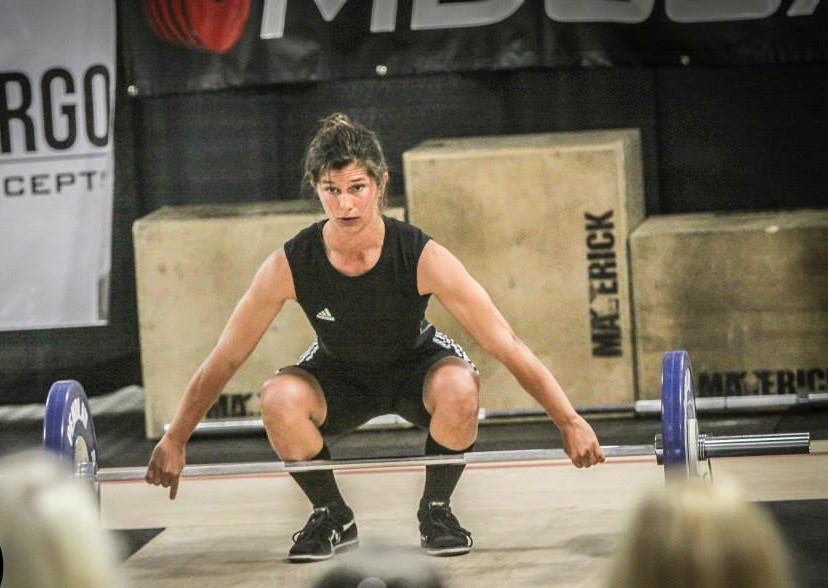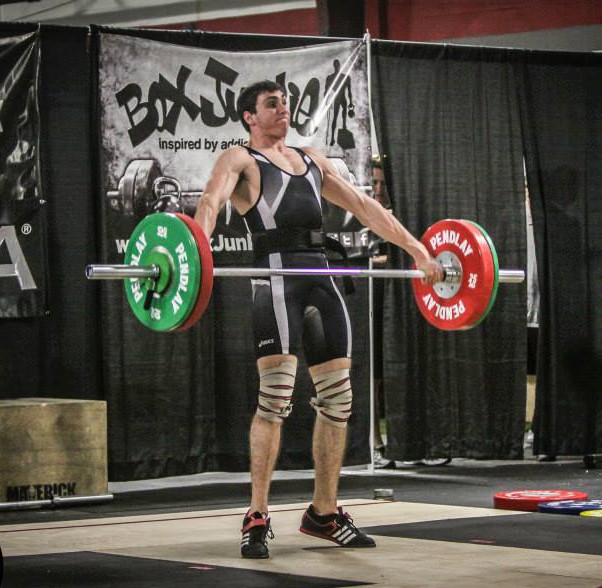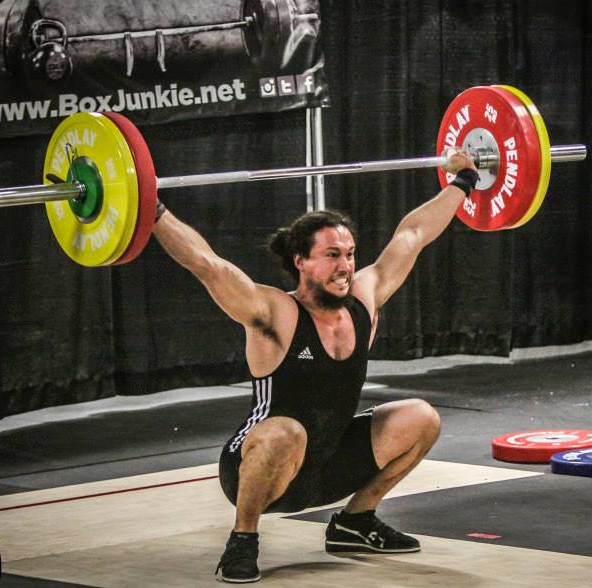A few weekends ago, The Ark Barbell Club entered its first weightlifting meet as a team at Crossfit Blackbox in Tallahassee, Florida. Donny and I had picked out this meet many weeks in advance, because it coincided perfectly with the end of our training cycle. The team prepared specifically for this meet. At a weightlifting meet, the first thing an athlete does is weigh-in. When athletes weigh-in, they are asked for their first attempts in the snatch and the clean and jerk. Their weight-classes and first attempts are written on a score card. These cards are then placed in order according to the athlete's declared first attempt at the score table.
The first lifter is the lifter who's first attempt is the lightest. As lifts are performed, the barbell climbs in weight. If the lifter makes the lift, she will increase the weight on the barbell for her next attempt by declaring her next weight to the officials at the score card table. If the lifter misses the weight, she will usually keep the same weight and follow herself on the platform, or another lifter whose next lift is the same weight will attempt a lift. In some cases, the lifter, even after missing the weight, may choose to increase the weight. An athlete may choose to do this for strategic purposes, especially if she is confident that she will make the lift. However, if an athlete misses all of her snatches or clean and jerks, then she doesn't "total." A "total" is the sum of an athlete's best snatch and clean and jerk. Entry into regional, state, national and international competitions is based on qualifying totals, and winners of competitions are chosen based on their totals. So, athletes NEED to total, which means, make at least one snatch, and one clean and jerk.
A weightlifting meet is down tempo. If Crossfit competitions are heavy metal, weightlifting meets are roots dub. Spectators usually comment on the tranquility of the event; not very much noise except for the periodic grunt and dropping of weights and applause. Before the lift, there is always a deep moment of silence, before being broken by the clash of steel with flesh. Then, three judges who sit to the front and off to the sides of the lifter proclaim their judgement: white or red--good or bad lift. The chatter rises then subsides again as the next lifter approaches. The master of ceremonies calls out lifters, and tells the loaders how much weight to put on the barbell. The loaders, who carry more weight than any competitor, scurry on and off the platform like ants, breaking down and adding weights to the bar.
Spectators become enthralled with lifters, each with there own idiosyncrasy and approach to the lift; sometimes fierce and emotional, sometimes quiet and serene, sometimes scared and unsure. Without a question, athletes are placing themselves in the arena of sport to be judged. They are being tested. They are testing themselves. They are testing their methods. Just by stepping onto the platform, they have demonstrated courage and humility, because they have faced the fear of failure, the fear of failure in front of others, the fear of injury and the fear of humiliation. To step onto the platform is to conquer fear; to own it and embrace it.
Weightlifting competition is all about timing. Coaches count the approximate number of lifts before their lifter's turn to ensure for timely and adequate warm-up lifts. Sometimes, things don't go as planned. For instance, if a lifter declares 100kg for their first attempt, and you have declared 102kg for your first attempt, the assumption is that you will lift right after the lifter at 100kg. The problem arises when the lifter misses the lift, then repeats, then misses again, then goes for a third attempt at 100kg. There you are, thinking you are next, warmed up and ready to go, and all of a sudden, you have been waiting 4 to 6 minutes to lift. But this cannot throw you off, you must be ready for the unexpected.
Weightlifting is a mental game. Athletes choose their openers based on how much they have lifted in the past, and based on a performance goal for the meet. Open up too light, and reaching that PR (personal record) lift becomes more challenging due to the larger weight increases. Open up too heavy, and you run the risk of missing your first attempt, which is a confidence crusher. Usually, a first attempt should be a weight you can hit on a consistent basis. I like to open up conservatively, then make a medium jump up to a challenging weight (not a PR). If I hit my second attempt, I'll go for a PR, or a near PR, based on how I'm feeling that day. The point is, you've hit your openers before, so hit them on the platform. Missing your openers exposes one of two things: either you were over zealous in choosing your opener, or your mental game and consistency needs work--get your head straight and hit the weight!
[youtube https://www.youtube.com/watch?v=PzF45Lh42RU&w=560&h=315]
Every athlete should strive for a six for six performance. When you go six for six, you've made every attempt at the meet: three snatches and three clean and jerks. But, then again, six for six will not win you the meet, nor will it qualify you for the next level of competition. Still, setting the bar high for yourself, even if that means hitting modest weight, or not hitting a personal record, will set you apart from the other competitors. Make your goal six for six every meet.
Furthermore, athletes should differentiate between meet PRs and training PRs. This way, one can still progress their development without the added pressure of making all-time PRs at every meet. A training PR will not qualify an athlete for national competition. A meet PR will. Differentiate between the two. Set realistic goals and track your meet progress as you would your training progress. An all-time PR attempt should be a reward for hitting the previous two lifts. And, even then, a PR lift should only be taken if one is confident that she will make the weight, not a wishful attempt at a weight one has no chance of making.
The Black Box Classic was our first weightlifting meet as The Ark Barbell Club. Everyone totaled, two of our lifters won gold in their weight classes, and we had some gym members join us to spectate and support the team. For me, it was a very positive experience, and I'm looking forward to my next meet. The best part was getting together afterwards, eating some good food, and sharing time to talk about the meet, what happened, and where we want to go. The second best part was going six for six, and setting an all-time personal record at 132kg for the clean and jerk.
Competition is a learning experience. When you are on the platform, you learn about yourself. When you are in competition, you learn about yourself. Competing is a sure way to improve your skill and training. Without it, you'll miss out on mental and physical development. I really believe that. Competition is never comfortable. It is never nice to fail in the presence of others. But still, it is a necessary part of growth. Discomfort is a sign that you are doing things right; feel the fear and do it anyways. If something scares you, that is your signal that it is a worthwhile endeavor. Do it. There are too many people who let fear repel them. Let fear fuel your fire.
The Ark is proud to announce that we will be hosting our second ever USAW sanctioned weightlifting meet on Saturday, June 20th, 2015. We encourage all lifters in and around Gainesville and north central Florida to participate. We hope to have similar attendance to our last meet and we look forward to serving athletes from our city and surrounding areas. You can look forward to good food, chill vibes, and strong, attractive athletes lifting heavy barbells. Hope to see you there! In the meantime, sharpen your skills, sharpen your mind, and stay healthy. See you at the next meet.
All photos credited to Crossfit BlackBox

